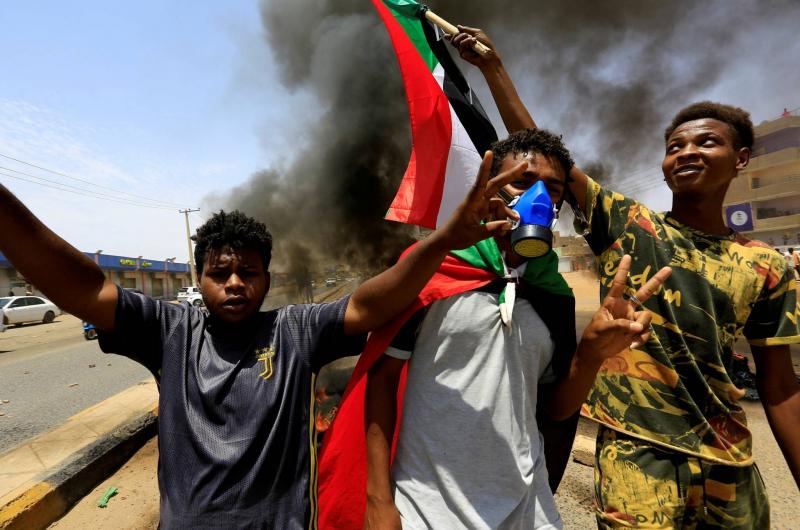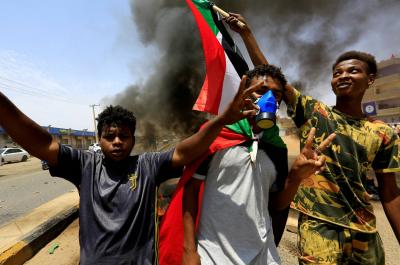After five weeks of fierce battles between the army and the semi-military Rapid Support Forces, both sides agreed on a seven-day ceasefire beginning at 9:45 PM local time (7:45 PM GMT) on Monday, aimed at facilitating humanitarian aid delivery.
The ceasefire, which came into effect on Monday in Sudan, was fragile from the start, as witnesses in the capital Khartoum reported fighter jets flying over the city and ongoing clashes in some areas. They stated that heavy shelling could be heard in eastern Khartoum. One resident shared a photo showing columns of smoke rising in the sky. Residents in Omdurman and Bahri reported hearing gunfire.
In the hours leading up to the ceasefire, the army conducted intensive airstrikes across Khartoum targeting the Rapid Support Forces. Although fighting has continued during previous ceasefire agreements, this is the first ceasefire officially agreed upon following negotiations.
The agreement includes a monitoring mechanism involving the army, the Rapid Support Forces, and representatives from Saudi Arabia and the United States, who mediated the deal after talks in Jeddah.
The U.S. State Department announced on Tuesday that a committee based in Saudi Arabia has been established to monitor the implementation of the ceasefire agreed upon by the Sudanese army and the Rapid Support Forces, discussing allegations of violations with the United States. State Department spokesman Matthew Miller stated that Washington, in addition to directly communicating with the leaders of the warring factions, has "additional tools" to address ceasefire non-compliance and "will not hesitate to use those tools at the appropriate time."
Just before the ceasefire took effect, Rapid Support Forces commander Lieutenant General Mohamed Hamdan Dagalo (Hemedti) issued a voice message thanking Saudi Arabia and the United States but urged his men to persevere until victory or martyrdom. He stated, "We will only retreat by ending this coup, bringing to justice those who have wronged the Sudanese people, and returning to the democratic path."
Both sides exchanged accusations of attempting to seize power at the beginning of the conflict.
The agreement has renewed hopes for ending a war that has displaced nearly 1.1 million people from their homes, including more than 250,000 who have fled to neighboring countries, threatening to destabilize an already troubled region.
UN envoy to Sudan Volker Perthes stated that the ceasefire should allow civilians to move freely and provide access to humanitarian aid. He added in a briefing to the UN Security Council in New York, "This is a welcome development, even though fighting continues and troop movements are ongoing today, despite both sides' commitment not to seek military advantage before the ceasefire goes into effect."
U.S. Secretary of State Antony Blinken announced on Tuesday that the United States intends to provide $245 million in humanitarian aid to Sudan and neighboring countries to help cope with the ongoing crisis resulting from the conflict in Sudan. Blinken stated on Twitter, "The United States is proud to provide $245 million in humanitarian assistance to support refugees, displaced persons, and host communities in Sudan and neighboring countries." He added, "This time we will announce the names of those who violate the ceasefire and we have our monitoring tools."
*Message from Activists to Perthes*
Sudanese activists wrote a letter to UN envoy Volker Perthes, complaining about indiscriminate shelling, airstrikes on residential areas, as well as the use of civilians as human shields, extrajudicial killings, torture, and sexual violence.




